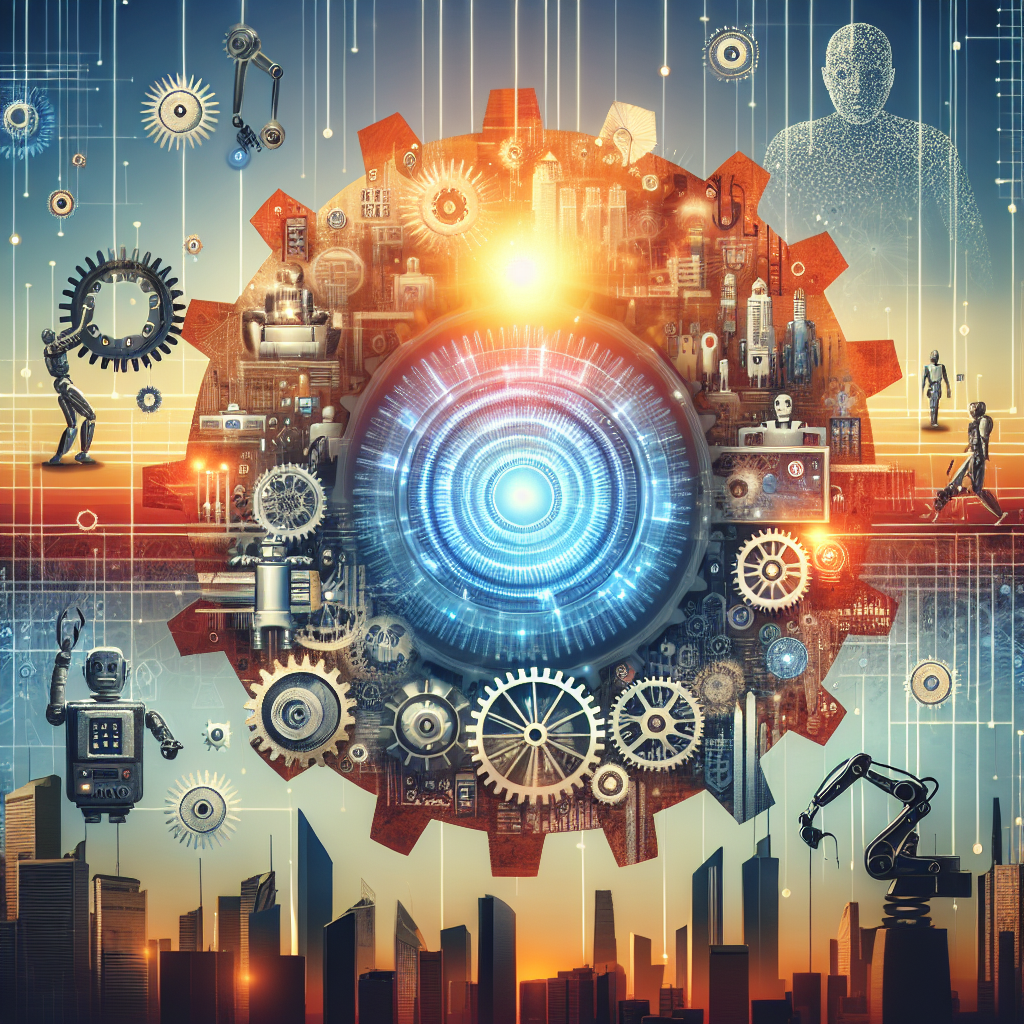The Rise of AGI: How It’s Reshaping the Future of Work
Artificial General Intelligence (AGI) is a term that refers to the development of machines that possess the same level of intelligence and cognitive abilities as humans. While artificial intelligence (AI) has already made significant advancements in various industries, the rise of AGI has the potential to revolutionize the way we work and live.
AGI has the ability to think, learn, and adapt like a human being, leading to a wide range of applications in different fields such as healthcare, finance, transportation, and more. As AGI continues to evolve, it is reshaping the future of work in ways that were previously unimaginable.
In this article, we will explore the rise of AGI and its impact on the future of work, including how it is changing the nature of jobs, the skills required to thrive in a world with AGI, and the ethical implications of this technology. We will also address some frequently asked questions about AGI and its implications for the workforce.
The Rise of AGI
The development of AGI has been a long-standing goal in the field of artificial intelligence. While AI has made significant progress in recent years, current AI systems are limited to specific tasks and lack the ability to generalize knowledge across different domains. AGI, on the other hand, aims to create machines that can perform a wide range of cognitive tasks at a human level.
AGI has the potential to revolutionize the way we work by automating tasks that were previously thought to be exclusive to humans, such as creative problem-solving, decision-making, and emotional intelligence. This has the potential to increase efficiency, productivity, and innovation in various industries.
One of the key benefits of AGI is its ability to learn and adapt to new information and situations in real-time. This means that AGI systems can continuously improve and evolve their capabilities, leading to better performance and outcomes over time. This has the potential to transform the way we work by enabling us to focus on higher-level tasks that require human creativity and ingenuity.
Impact on the Future of Work
The rise of AGI is reshaping the future of work in several ways. One of the most significant impacts of AGI is the automation of routine and repetitive tasks, which has the potential to eliminate many low-skilled jobs that are currently performed by humans. This could lead to widespread job displacement and a shift in the skills required to succeed in the workforce.
On the other hand, AGI also has the potential to create new job opportunities in fields that require human creativity, critical thinking, and emotional intelligence. As AGI systems take over routine tasks, humans will be able to focus on tasks that require a human touch, such as designing new products, developing innovative solutions, and building meaningful relationships with customers.
The rise of AGI is also leading to the emergence of new job roles and skill sets that are essential for thriving in a world with AGI. These include skills such as data analysis, machine learning, programming, and human-computer interaction. As machines become more intelligent and capable, humans will need to develop new skills to work alongside them and harness their full potential.
Ethical Implications
The rise of AGI also raises important ethical questions about the impact of this technology on society. One of the key concerns is the potential for AGI to exacerbate income inequality by displacing low-skilled workers and concentrating wealth in the hands of a few. This could lead to social unrest and economic instability if not addressed proactively.
Another ethical concern is the potential for AGI to be used for malicious purposes, such as mass surveillance, autonomous weapons, and manipulation of public opinion. As AGI systems become more powerful and autonomous, there is a need to establish clear ethical guidelines and regulations to ensure that they are used responsibly and ethically.
Frequently Asked Questions
1. What is the difference between AGI and AI?
AI refers to machines that can perform specific tasks at a human level, such as speech recognition, image classification, and data analysis. AGI, on the other hand, aims to create machines that can perform a wide range of cognitive tasks at a human level, including reasoning, problem-solving, and emotional intelligence.
2. How will AGI impact the job market?
AGI has the potential to automate routine and repetitive tasks, leading to job displacement in certain industries. However, it also has the potential to create new job opportunities in fields that require human creativity, critical thinking, and emotional intelligence.
3. What skills are required to thrive in a world with AGI?
Skills such as data analysis, machine learning, programming, and human-computer interaction are essential for thriving in a world with AGI. Humans will need to develop new skills to work alongside AGI systems and harness their full potential.
4. What are the ethical implications of AGI?
The rise of AGI raises important ethical questions about income inequality, job displacement, and misuse of technology. It is essential to establish clear ethical guidelines and regulations to ensure that AGI is used responsibly and ethically.
In conclusion, the rise of AGI is reshaping the future of work in ways that were previously unimaginable. While AGI has the potential to revolutionize the way we work by automating routine tasks and creating new job opportunities, it also raises important ethical questions about its impact on society. It is essential to address these challenges proactively to ensure that AGI is used responsibly and ethically for the benefit of humanity.

